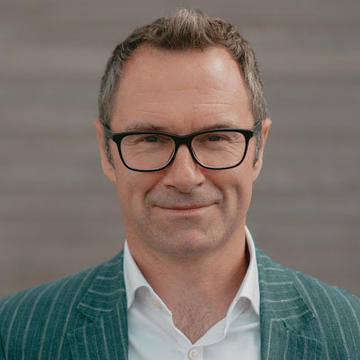Darren Dixon

Darren Dixon
Professor of Organic Chemistry
Research in the Dixon group is centred on the development of new, broadly useful, stereoselective synthetic methodologies and their application to the synthesis of molecules of importance in nature, biology, medicine and materials science. We design and deploy new multifunctional cooperative catalysts and catalytic systems to uncover new reactivity and impart exquisite stereocontrol, and our interests span curiosity-driven to target-driven research themes. A predominant focus of our group is catalytic stereoselective synthesis and we have published extensively on new, highly enantioselective methods development, total synthesis of complex natural products, new cooperative catalyst designs, and new cascade reactions.
Reductive Functionalisation of Carbonyl Derivatives
We strive to invent new synthetically powerful methodologies – founded on new catalyst-enabled reactivity – that simplify the synthesis of structurally complex scaffolds, natural products and molecules of biological significance. We like to tackle reactions that have no precedent in the literature and strive to make the resulting methodologies attractive to synthesis chemists by developing protocols that are operationally simple, predictable, efficient, selective and scalable. To this end our group has an active research programme engaged in developing and exploiting new iridium complexes for highly efficient reductive functionalisation of amides, esters, imides and carbamates affording, for example, valuable amine and ether products from abundant feedstock reagents and starting materials.
Bifunctional Iminophosphorane Superbase Catalysis
Recognising the catalytic limitations of bifunctional tertiary amine catalysts – either through insufficient substrate activation or ineffective enantiocontrol through lack of tunability – we conceived and realized the bifunctional iminophosphorane class of superbase catalysts in 2013. Through its highly modular design incorporating a variable H-bond donor group, chiral diamine-derived scaffold and triarylphosphine-derived iminophosphorane superbase, this catalyst class has enabled unprecedented performance in enantioselective Brønsted base catalysis. We continue to investigate this uniquely modular and tunable multifunctional catalyst design-and-build platform for exploring new concepts, uncovering fundamental reactivity and developing a wide range of novel and important reactions in the field of enantioselective catalysis.
New Technologies for Chemical Synthesis
Alongside new metal-rich and metal-free catalyst development, our group has a strong and active interest in the development of new photochemical and electrochemical reaction technology. These range from discovering and exploiting powerful photocatalytic methodologies from abundant feedstock chemicals including amines, aldehydes, ketals and enol ethers, to developing new devices, hardware and chemical reactors for enabling reactions that were not previously possible, including for example photochemical reductive functionalisation of abundant carbonyl compounds.
Complex Natural Product Total Synthesis
We have a long and successful track record of inventing new and synthetically powerful methodologies and exploiting them as key carbon-carbon bond forming steps in complex natural product total synthesis. These range from catalytic enantioselective Michael reactions to dual organo / metal co-catalytic cycloisomerisation reactions for complex multicyclic core synthesis. As well as showcasing such chemistries within a target synthesis context, we use the complexity of natural molecule targets to inspire new reaction and reaction cascade discovery. Notable previous successes include iconic members of the manzamine, aspidosperma, iboga and daphniphyllum alkaloid families.
Associated Research Themes:
Darren J. Dixon is Professor of Organic Chemistry at the Department of Chemistry, University of Oxford. He studied at the University of Oxford for his Masters degree (awarded in 1993) and his DPhil (awarded in 1997) for natural product total synthesis research supervised by Professor Stephen G. Davies. After postdoctoral work with Professor Steven V. Ley CBE, FRS, he joined the faculty at the Department of Chemistry in Cambridge in 2000. In 2004 he took a Senior Lectureship at The University of Manchester and in 2007 he was promoted to Reader. In 2008 he moved to his current post at the University of Oxford where he is Professor of Chemistry and is the Knowles-Williams Tutorial Fellow in Organic Chemistry at Wadham College. His honours include an EPSRC Leadership Fellowship, the RSC Catalysis in Organic Chemistry Award, the AstraZeneca Research Award, Novartis Chemistry Lectureship and Distinguished Visiting Professorships at the Universities of Perugia and Kyoto. He is Director of the Synthesis for Biology and Medicine CDT in Oxford and is Co-founder, Director and Chief Scientific Officer of Cortex Organics Ltd, a spin-out of the University of Oxford specialising in high value product development and innovative route development to complex molecular targets of high value to the pharmaceutical sector.




